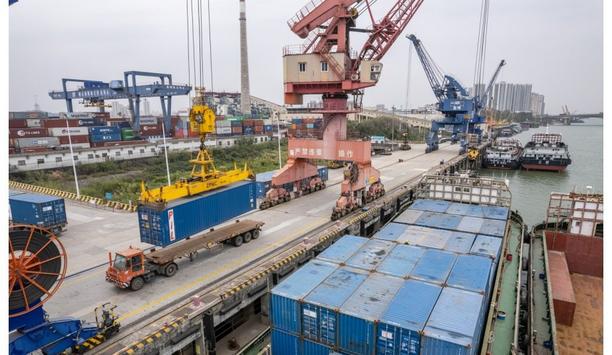A new insight brief series from the Global Maritime Forum identifies four actions that maritime and shipping industries can take now to support shipping’s transition to a sustainable and resilient zero-emission future.
“We need to clean up shipping supply chains and optimise our operations. To do this, we must collaborate, standardise, and be transparent. Let’s share the benefits of slowing down and let’s collectively make a difference,” says Eman Abdalla, Global Operations & Supply Chain Director at Cargill Ocean Transportation, one of the transporters of dry and bulk cargo in the world.
Zero-emission fuels and technologies
The shipping industry is facing a major transformation as it is working towards full decarbonisation by 2050. Short-term actions that improve the operational efficiency of existing vessels – saving fuel, money, and time through changes in ship speed and performance – can play a critical role in reducing emissions today, while also preparing for a more manageable long-term transition which will involve more expensive zero-emission fuels and eventually a price on carbon.
Zero-emission fuels and technologies are imperative for the decarbonisation of the industry
Zero-emission fuels and technologies are imperative for the decarbonisation of the industry, but they are not commercially available at scale. Cutting down on fuel costs by improving the operational efficiency of fleets will be a prerequisite for the adoption of more expensive zero-emission fuels and a foundation for green corridors – routes between major port hubs where zero-emission solutions are supported and demonstrated.
Energy-efficient technologies
Maximising vessel and fleet performance through operational efficiency can reduce annual fuel costs by $50 billion at prices, according to research. That means up to 20% of fuel costs will be saved up and even more if combined with energy-efficient technologies.
The research also suggests that optimising operational efficiency has the potential to reduce annual emissions by more than 200 m tonnes of CO2. Unlocking this potential is not simple, yet capitalising fully on operational efficiency will be a prerequisite to achieving 2030 and 2050 emissions reduction targets in line with the Paris Agreement’s 1.5°C ambition.
Overview of the short-term opportunities
This insight brief, the result of over a year of industry input, provides an overview of the short-term opportunities and barriers to operational efficiencies and takes a systems view to explore the role of operational efficiency measures as enablers of shipping decarbonisation in the longer term.
Enablers explored in the upcoming insight briefs that will dive deeper into identified solutions
Four types of solutions are identified in the brief: better transparency and standardisation of performance data; scaling up pilots and best practices; contractual changes to encourage virtual arrival practices when there is a delay at the discharge port; and policies and regulations to enable new business models. Each of these enablers will be explored in the upcoming insight briefs which will dive deeper into the identified solutions and enablers.
Outcome of MEPC 90
The International Maritime Organisation (IMO) is expected to adopt a revised greenhouse gas emissions strategy at the MEPC 80 meeting in July – the most important climate meeting for shipping this year. While the industry is unsure whether the outcome of MEPC 90 will result in the adoption of a low-ambition or high-ambition strategy, in either case, the need for short-term operational efficiencies will be crucially important for the transition.
Randall Krantz, Senior Adviser on Decarbonisation at the Global Maritime Forum says: “The operational performance of vessels and entire fleets presents a huge opportunity to the shipping industry, but it will require unprecedented levels of disruptive thinking to break through from dialogue to action.”












